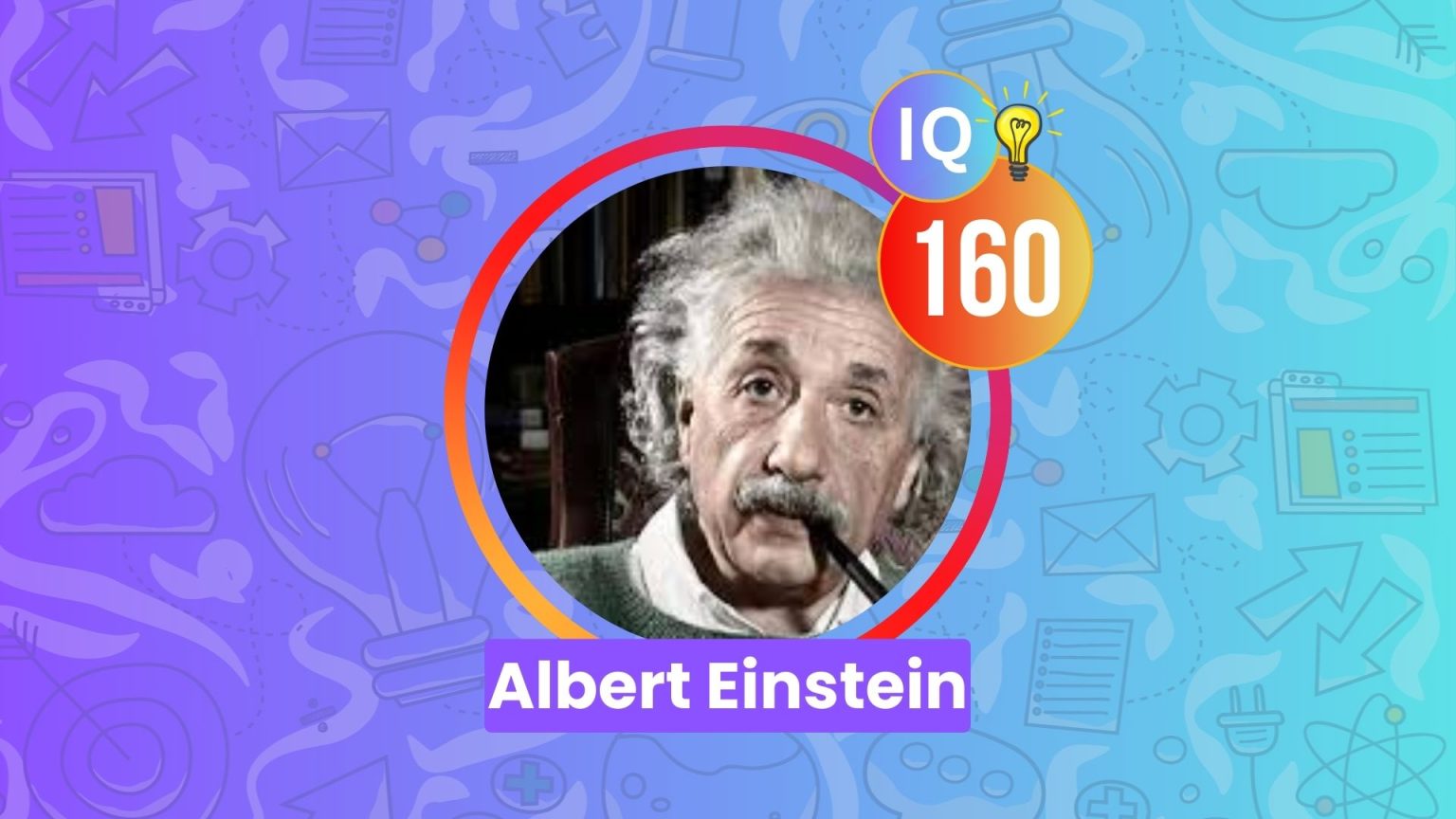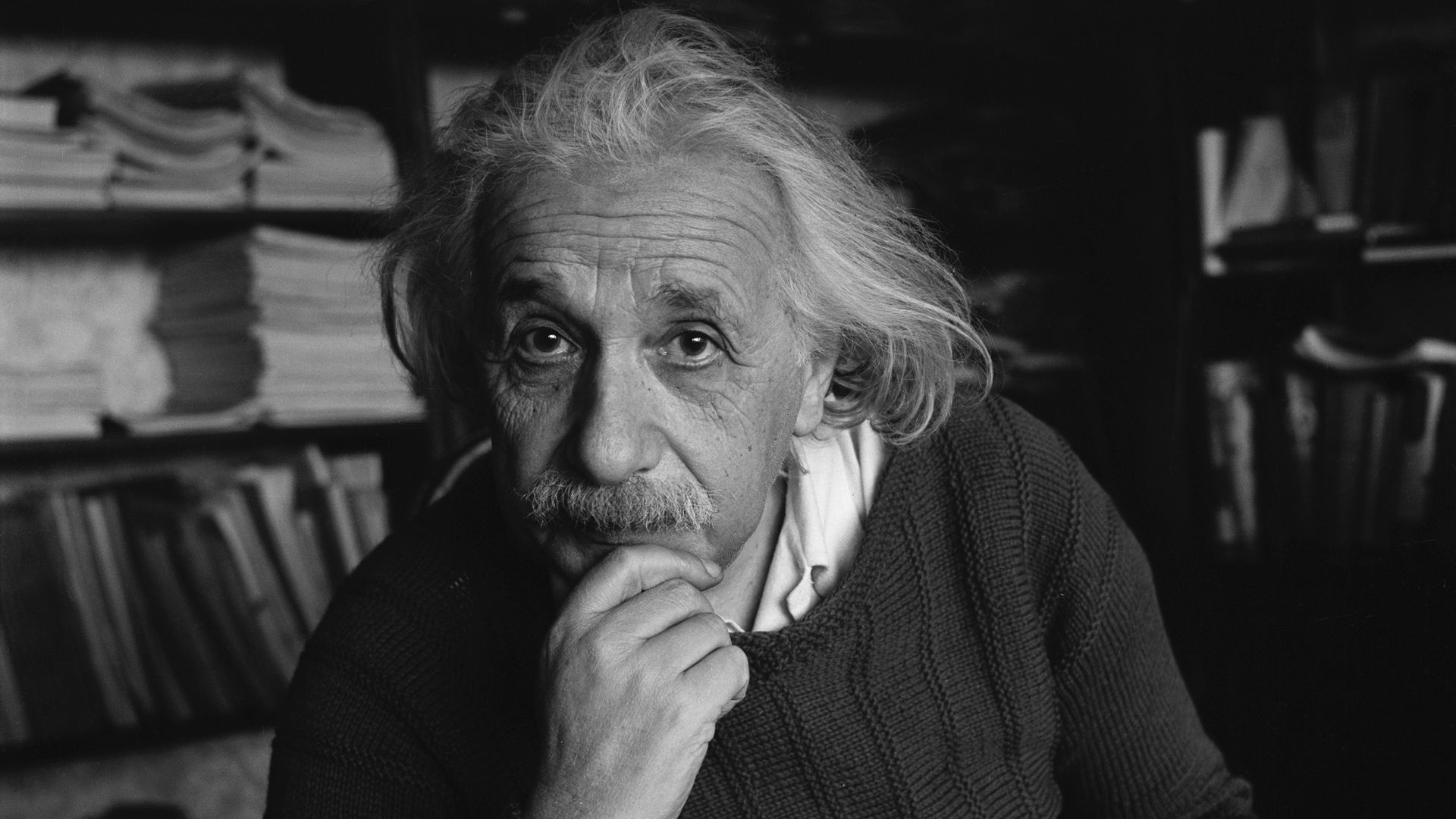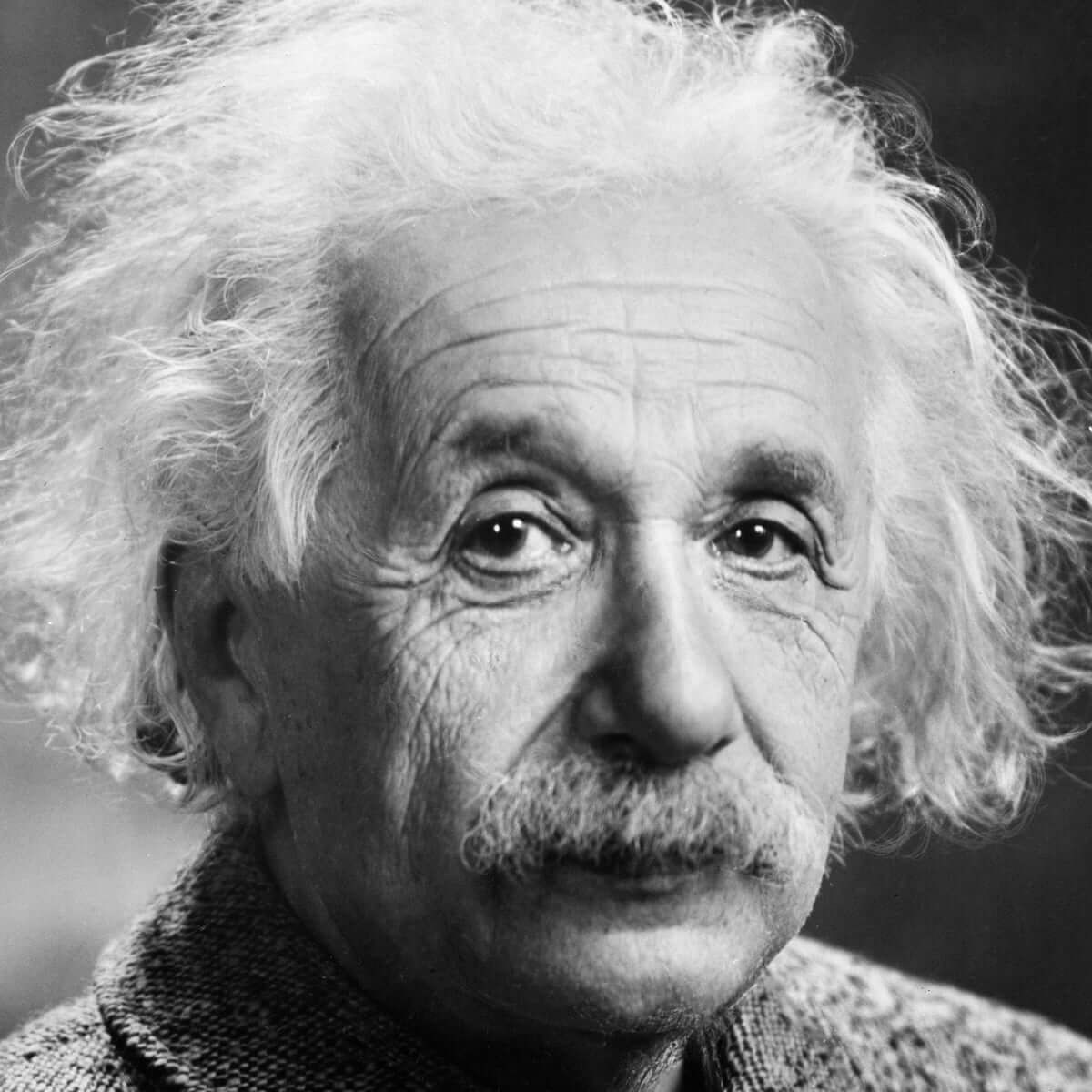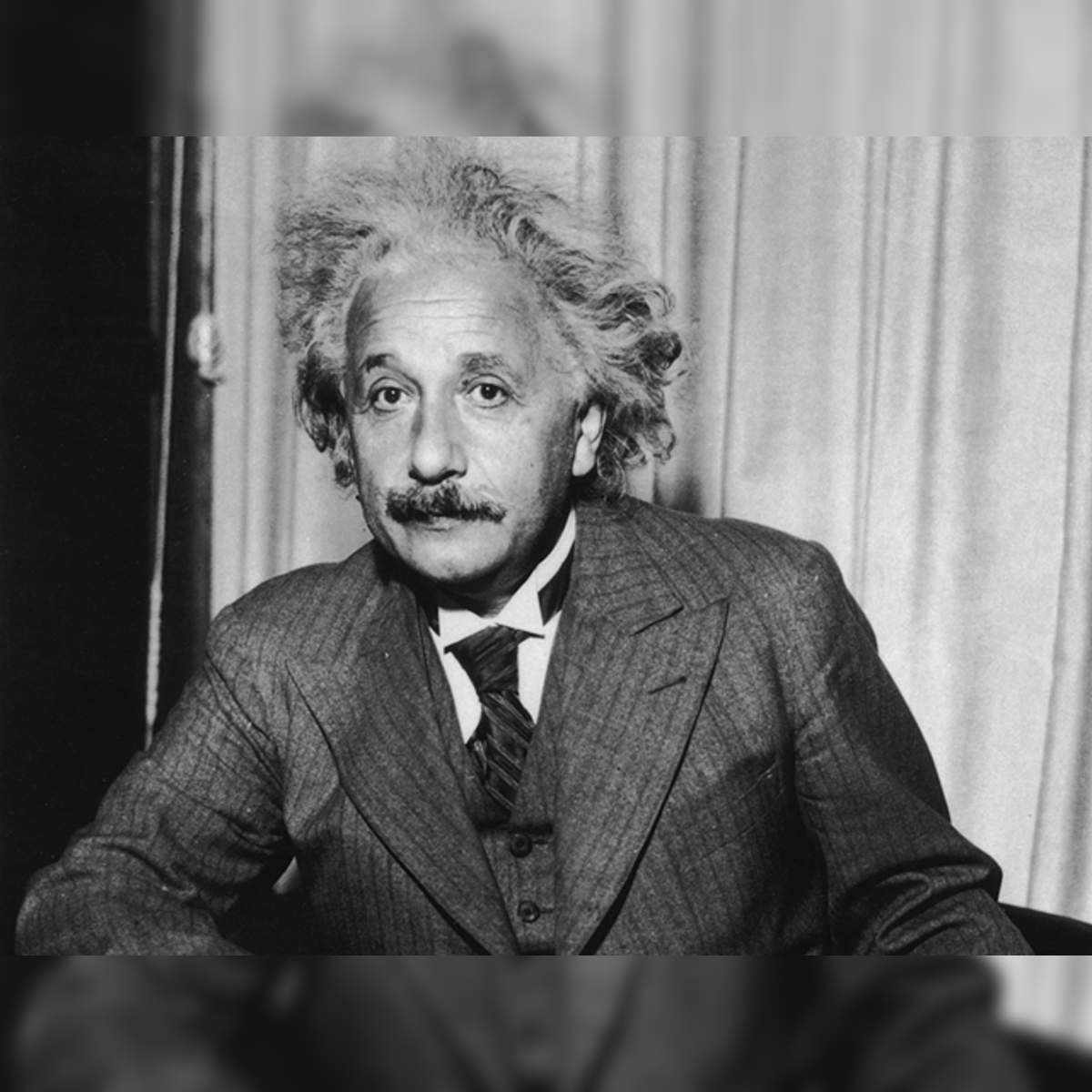Exemplary Info About What Was Einstein's IQ

The Enigmatic Mind
1. Unraveling the Myth of a Single Number
Alright, let's talk about a question that pops up more often than you might think: What was Einstein's IQ? It's a fascinating question, really. We're all captivated by the idea of genius, and pinning a number on it seems like a way to quantify brilliance. However, the truth is a bit more nuanced than a simple IQ score.
Here's the thing: Einstein never actually took a standardized IQ test — at least, there's no reliable record of him doing so. So, when you see numbers floating around, like 160, 180, or even higher, understand that these are estimates, extrapolations based on his accomplishments and his understanding of complex concepts. Imagine trying to put a numerical value on someone who reshaped our understanding of the universe! It's like trying to measure the ocean with a teaspoon.
The concept of IQ itself is kind of tricky. It's designed to measure specific cognitive abilities, things like logical reasoning, spatial awareness, and verbal comprehension. While Einstein certainly excelled in these areas, his genius transcended these standardized metrics. His true strength lay in his ability to think outside the box, to challenge conventional wisdom, and to ask questions that no one else even considered.
Think of it this way: trying to define Einstein by his IQ is like trying to define a masterpiece painting by the amount of paint used. It misses the point entirely! His intellect was so much more than a single number could ever capture.
What Was Albert Einstein’s IQ? With Other People High IQs
Beyond the Numbers
2. The Power of Curiosity and Persistence
So, if we can't rely on an IQ score, what can we point to that made Einstein the extraordinary thinker he was? Well, for starters, he possessed an insatiable curiosity. From a young age, he was fascinated by the world around him, constantly questioning everything and seeking explanations.
Remember the story about the compass his father gave him? That seemingly simple gift sparked a lifelong fascination with invisible forces and the underlying principles of the universe. He wasn't just satisfied with knowing how things worked; he wanted to know why.
Then there's his incredible persistence. Einstein's journey to groundbreaking discoveries wasn't always smooth sailing. He faced setbacks, rejections, and even periods of doubt. But he never gave up on his quest for knowledge. He relentlessly pursued his ideas, refining his theories, and challenging existing paradigms.
And let's not forget his remarkable ability to visualize abstract concepts. He famously used thought experiments — imaginary scenarios — to explore the nature of reality. These mental exercises allowed him to grapple with complex ideas and develop his revolutionary theories.

Albert Einstein's IQ Score (Theoretical Physicist)
IQ and Genius
3. The Importance of Creative Thinking
The relationship between IQ and genius is complex and not always straightforward. While a high IQ can certainly be an asset, it's not the sole determinant of exceptional achievement. Many people with high IQs lead perfectly ordinary lives, while others with more modest scores make extraordinary contributions to society.
What sets geniuses like Einstein apart is their ability to think creatively, to see connections that others miss, and to challenge conventional wisdom. They're not just good at memorizing facts or solving problems in a prescribed way; they're able to generate novel ideas and solutions.
Consider the fact that Einstein struggled with certain aspects of traditional schooling. He wasn't a star student in every subject, and he even had some run-ins with authority figures. This suggests that his talents weren't necessarily aligned with the standardized measures of academic achievement.
Ultimately, it's the combination of intellectual ability, curiosity, persistence, and creative thinking that fuels true genius. IQ is just one piece of the puzzle, and focusing solely on the number misses the larger picture.

The Enduring Legacy
4. Inspiring Future Generations
Regardless of what his actual IQ might have been, Einstein's legacy is undeniable. He revolutionized our understanding of space, time, gravity, and the universe itself. His theories continue to shape scientific research and technological advancements today.
But perhaps even more importantly, he inspired generations of scientists, thinkers, and dreamers to push the boundaries of knowledge and to challenge the status quo. He showed us that it's okay to question everything, to think differently, and to pursue our passions with unwavering determination.
So, the next time you hear someone ask about Einstein's IQ, remember that it's not the most important question to ask. Instead, focus on the qualities that truly made him exceptional: his curiosity, his persistence, his creativity, and his unwavering commitment to understanding the universe.
His impact extends far beyond scientific circles. Einstein became a symbol of intellectual curiosity, peace, and humanitarianism. He used his platform to advocate for social justice and to speak out against oppression. That is the measure of a man.

Frequently Asked Questions (FAQs) About Einstein's Intelligence
5. Answers to Common Queries
Let's address some frequently asked questions about Einstein's intelligence and try to clear up some common misconceptions.
Q: What's the most common estimate for Einstein's IQ?A: While there's no definitive answer, the most frequently cited estimates range from 160 to 180. However, it's crucial to remember that these are just educated guesses.
Q: Did Einstein struggle in school?A: There are accounts of him not excelling in every subject, and some sources suggest he had issues with authority. He did have some teachers that saw him as a disruption in class. However, he was undeniably gifted in math and physics.
Q: What qualities contributed to Einstein's genius besides intelligence?A: Curiosity, persistence, creative thinking, the ability to visualize abstract concepts, and a willingness to challenge conventional wisdom were all key factors in his success.
Q: Where can I read more about Einstein's work?A: There are countless books and articles about Einstein's life and scientific contributions. Biographies by Walter Isaacson and Abraham Pais are highly recommended. And, you can visit the Einstein Archives Online!
